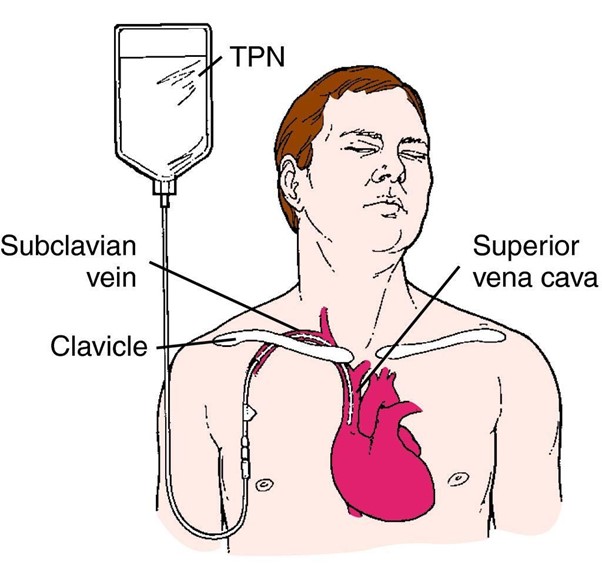The nurse is preparing the client for discharge and discussing home medications. What home medications may affect the amount of insulin needed by the client? Select all that apply.
St. John's Wort
Corticosteroids
Ibuprofen
Oral contraceptives
Epinephrine
Correct Answer : A,B,D,E
Choice A rationale: St. John's Wort is an herbal supplement that can interact with various medications, including insulin, and may alter blood glucose levels. It can reduce the effectiveness of insulin, leading to decreased blood glucose control. It is essential for the client to inform the healthcare provider about any use of St. John's Wort to adjust the insulin regimen accordingly.
Choice B rationale: Corticosteroids can increase blood glucose levels by promoting insulin resistance and inhibiting insulin action. Clients with diabetes may require adjustments in their insulin dosage while taking corticosteroids to prevent hyperglycemia.
Choice C rationale: Ibuprofen is a nonsteroidal anti-inflammatory drug (NSAID) that does not typically have a direct impact on blood glucose levels in people with diabetes.
Choice D: Oral contraceptives, specifically combination hormonal contraceptives containing estrogen and progestin, can impact blood glucose levels. They may lead to insulin resistance and, in some cases, increase blood glucose levels. The healthcare provider may need to adjust the insulin dosage for better glycemic control.
Choice E rationale: Epinephrine is a hormone that may transiently increase blood glucose levels in response to stress, but it is not a home medication that the client would be taking regularly.
Nursing Test Bank
Naxlex Comprehensive Predictor Exams
Related Questions
Correct Answer is ["A","B","C","E"]
Explanation
Choice A
Generalized nonpitting edema is correct. Nonpitting edema could indicate fluid retention, and it's important to assess for signs of fluid overload, electrolyte imbalances, or underlying cardiac issues.
Choice B
Hypoactive bowel sounds in all 4 quadrants is correct. Hypoactive bowel sounds could suggest gastrointestinal motility issues, which could be a sign of gastrointestinal complications related to TPN.
Choice C
Redness at intravenous site is correct. Redness at the intravenous site could be indicative of infection, infiltration, or irritation. It's important to assess for signs of infection and ensure proper IV site care.
Choice D
Urinary output greater than 30 ml per hour is incorrect. While increased urinary output could indicate adequate hydration, it's not typically a concerning finding unless there are other signs of fluid imbalance. Top of Form
Choice E
Frequent productive cough is correct. A frequent productive cough could indicate respiratory issues, including aspiration pneumonia, which can be a complication of TPN.

Correct Answer is A
Explanation
Choice A
Potatoes, bananas, and oranges should be encouraged. Hypokalaemia refers to a lower than normal level of potassium in the blood. Potassium is an essential mineral that plays a crucial role in maintaining proper muscle function, nerve signalling, and fluid balance in the body. To address hypokalaemia, it's important to consume foods that are rich in potassium.
Choice B
Cranberry juice, butter, and hard candy. None of these foods are particularly high in potassium should not be encouraged. Cranberry juice is more commonly associated with urinary tract health, and butter and hard candy do not contribute significant amounts of potassium.
Choice C
Milk products, canned salmon, and fresh oysters should not be encouraged. While milk products contain some potassium, they are not as potent a source as other options. Canned salmon and fresh oysters do provide some potassium, but they are not as well-known for their potassium content as other foods like bananas and potatoes.
Choice D
Hard cheese, whole grain cereals, and dried vegetables should not be encouraged. These foods are not known for being particularly high in potassium. Hard cheese and whole grain cereals have limited potassium content, and dried vegetables, while containing some potassium, are not among the best sources.
Whether you are a student looking to ace your exams or a practicing nurse seeking to enhance your expertise , our nursing education contents will empower you with the confidence and competence to make a difference in the lives of patients and become a respected leader in the healthcare field.
Visit Naxlex, invest in your future and unlock endless possibilities with our unparalleled nursing education contents today
Report Wrong Answer on the Current Question
Do you disagree with the answer? If yes, what is your expected answer? Explain.
Kindly be descriptive with the issue you are facing.
